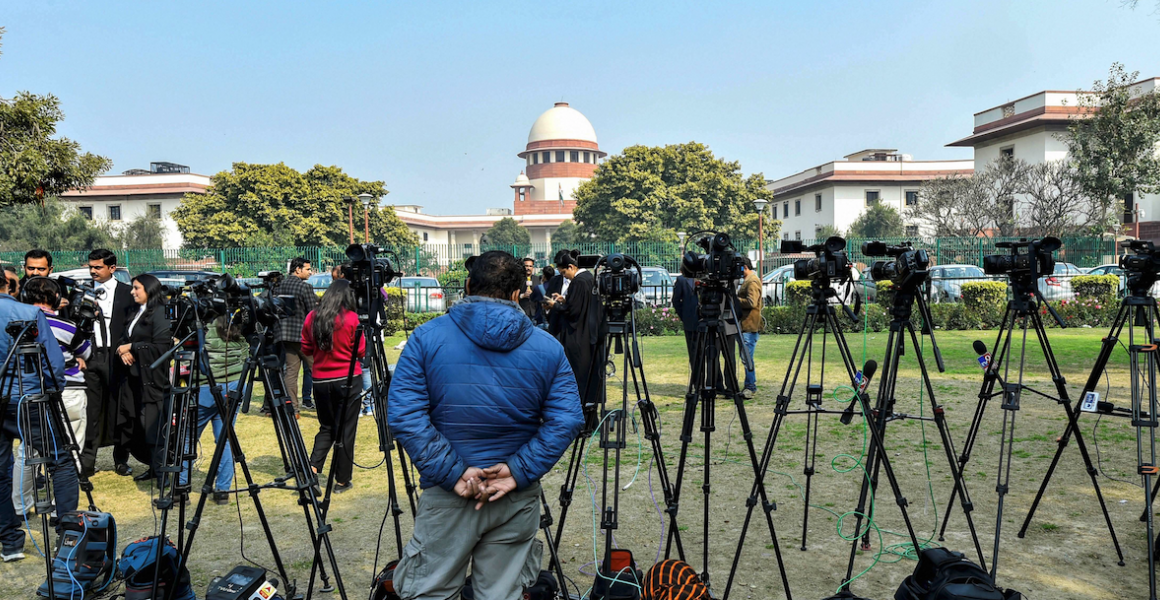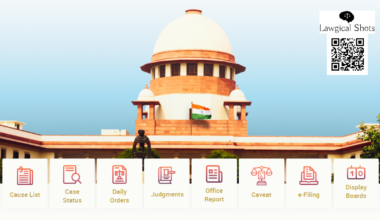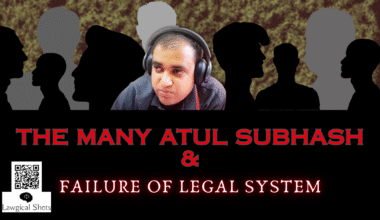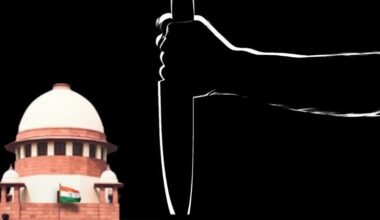India is the world’s largest democracy having the legislative, executive and judiciary as its three
important pillars. There is a fourth one that strengthens all three of them, i.e. Media. Pt.
Jawaharlal Nehru entitled the media as ‘watchdog of democracy’. The Article 19 (1) (a) also
supports the right of press.
Courts are legal institutions that decide matters through interpretation and application of laws.
Court proceedings are brought to the general public through media/ journalists. Realtime
reporting of court proceedings has become the latest trend. Court reporting by journalists should be informative. Digging news out of anything is not public interest. It may prove fatal once public opinions are drawn out of casual remarks in the courts. Below is a discussion on whether journalists should be allowed to report on observations made by courts during hearings.
Court Reporting in India
A layman depends upon various forms of media for day-to-day affairs. It was print media
initially, followed by electronic media. Since ordinary people accessed smartphones and the
internet, social media is the new go for realtime court reporting.
Technically, court reporters are part of the judicial system responsible for recording whatever is
said by the counsels, parties, witnesses, etc. during the proceedings assisting the judicial officers
decide matters. Court reporting in journalism is the means of conveying such court trials to the
public through mass media. It helps people understand material facts and the court’s view
towards the same during trial.
Sometimes judicial officers/ judges dealing with the matter in hand make some observations
based on the facts of the case and arguments presented. Such observations when reported
irresponsibly to the public may lead to unnecessary sensationalism and propagate negativity
against the judicial system.
Reporting “Court Observations”
Proceedings in the judicial courts are carried upon through communication between pleaders
(advocates) and judges saving the paperwork. The usual court proceedings involve dialogues,
mostly in a formal way. But informal observations occur often.
For what was orally observed by the court during an argument during farmer protest case earlier, a PIL was filed by Harsh Mander based on media reports. The Supreme Court dressed down the plea and clarified that oral observations made by judges during hearings have no legal sanctity. The then CJI Gogoi also reiterated that judgments should be the only basis to rely upon for court observations.
The question of court reporting was raised again after the Madras High Court criticized the ECI
poll panel for its’ failure to follow COVID protocol during political rallies and remarked that
“Election Commission should be put up on murder charges“. The apex court thereby observed
that open dialogue between the bar and bench is inevitable. Also, reporting court observations
can not be denied for the very reason of public interest.
Conclusion
For those who are curious about matters under trial, court reporting by journalists is crucial for
their enlightenment. As supported by the apex court, reporting of court proceedings can not be
denied but there should be some sanctity for what is being reported in the name of observation.
Thus, journalists should report what is actually a piece of news for public interest.








